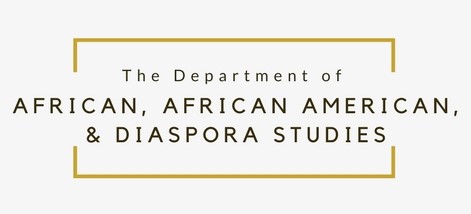Graduate Program
AAAD Graduate Program in Africana Studies (MA/PhD) – launching in Fall 2025
The department’s geographical breadth covers Africa, North America, South America, and the Caribbean, and the disciplinary diversity of our faculty encompasses history, anthropology, political science, literature, ethnomusicology, performance and dance, and other fields. These specializations inform the tracks and concentrations of our new graduate program. Additionally, the department has a long-standing and highly regarded language program that currently offers elementary, intermediate, and advanced language instruction in Swahili and Wolof. We began sponsoring our first course in Yoruba in spring 2022.
Our approach to graduate training bridges historical separations between African Studies and African American/Diaspora Studies and unites those fields within intellectual and methodological frameworks that focus on the experience and the agency of peoples of African descent in the modern world from a historical, cultural, and comparative perspective in general, and with respect to the impact of globalization on Africa and the African diaspora in particular. As such, we also aim to address major gaps in current studies of the global experiences of people of African descent.
Upon entry into the M.A. or Ph.D. program, students will be initially admitted into one of the following major geographic fields: (1) Africa, (2) African America, or (3) African Diaspora (non-North America). For the purpose of deepening the major geographic field with multi-disciplinary and content-specific study, students—in consultation with their primary advisor and by the end of their third semester of enrollment—will also declare two major thematic concentrations within the major geographic field. The options include: (1) Literary Studies and Cultural Production; (2) Gender, Sexuality, and Feminism; (3) Public Policy, Politics, and Social Change; and (4) Histories of the Africana World. Further, by the end of the third semester of enrollment, each student will select a minor geographic field to complement their major geographic field. Students may take any configuration of courses in the minor geographic field to fulfill degree requirements and are not required to declare a thematic concentration in the minor geographic field. The selection of the two major thematic concentrations within the major geographic field and the choice of minor geographic field should be informed by coursework taken in these areas.
The department will be distributing additional information about the graduate program, including application materials and deadlines, within the coming months. The department will start recruiting prospective graduate students in the fall of 2024, and admitted students will begin their studies at UNC-CH in fall 2025. For more information, please contact Professor Eunice Sahle (eunice@email.unc.edu) or Claude Clegg (cclegg@email.unc.edu).

